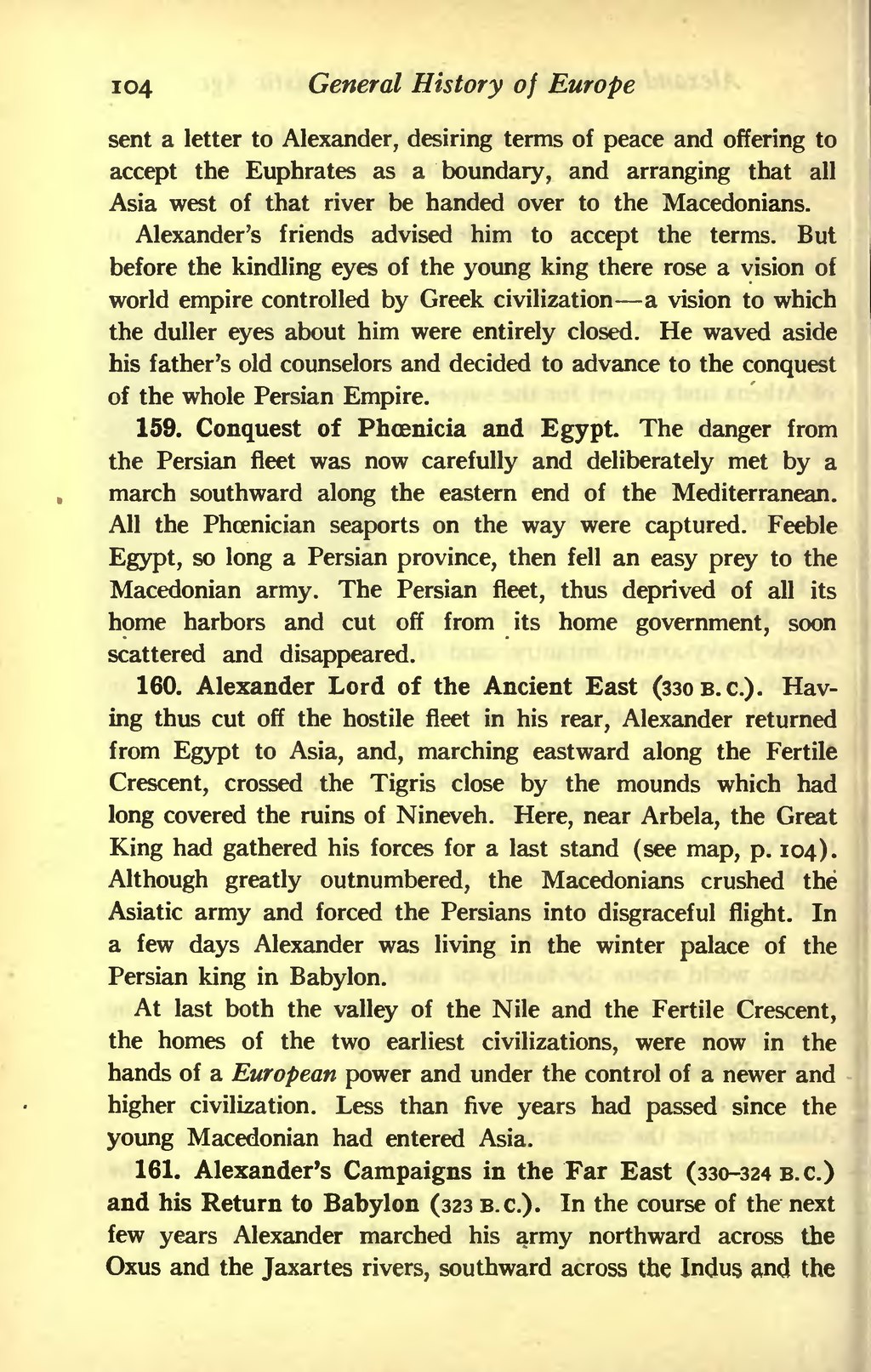IO4 General History of Europe sent a letter to Alexander, desiring terms of peace and offering to accept the Euphrates as a boundary, and arranging that all Asia west of that river be handed over to the Macedonians. Alexander's friends advised him to accept the terms. But before the kindling eyes of the young king there rose a vision of world empire controlled by Greek civilization a vision to which the duller eyes about him were entirely closed. He waved aside his father's old counselors and decided to advance to the conquest of the whole Persian Empire. 159. Conquest of Phoenicia and Egypt. The danger from the Persian fleet was now carefully and deliberately met by a march southward along the eastern end of the Mediterranean. All the Phoenician seaports on the way were captured. Feeble Egypt, so long a Persian province, then fell an easy prey to the Macedonian army. The Persian fleet, thus deprived of all its home harbors and cut off from its home government, soon scattered and disappeared. 160. Alexander Lord of the Ancient East (330 B.C.). Hav- ing thus cut off the hostile fleet in his rear, Alexander returned from Egypt to Asia, and, marching eastward along the Fertile Crescent, crossed the Tigris close by the mounds which had long covered the ruins of Nineveh. Here, near Arbela, the Great King had gathered his forces for a last stand (see map, p. 104). Although greatly outnumbered, the Macedonians crushed the Asiatic army and forced the Persians into disgraceful flight. In a few days Alexander was living in the winter palace of the Persian king in Babylon. At last both the valley of the Nile and the Fertile Crescent, the homes of the two earliest civilizations, were now in the hands of a European power and under the control of a newer and higher civilization. Less than five years had passed since the young Macedonian had entered Asia. 161. Alexander's Campaigns in the Far East (330-324 B.C.) and his Return to Babylon (323 B.C.). In the course of the next few years Alexander marched his army northward across the Oxus and the Jaxartes rivers, southward across the Indus and the
Page:General History of Europe 1921.djvu/154
This page needs to be proofread.
